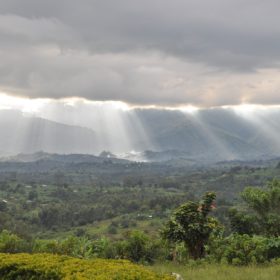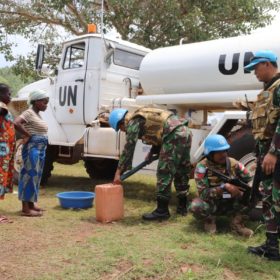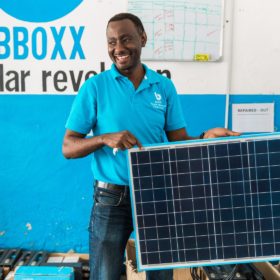Renewables deals dwarfed by oil and gas at UK-Africa Investment Summit
The scale of fossil fuel deals signed between African governments and U.K. oil and gas interests reportedly amounted to more than 11 times the volume of renewable energy commitments as Britain scrambles for post-Brexit financial opportunities.
Congolese president makes off-grid renewables pledge
Félix Tshisekedi reportedly said he wants to use standalone energy units, such as solar home systems, to bring electricity to at least 21 million people in the next nine years.
Solar-plus-storage will start to make big inroads in the year ahead
By this time next year we may be able to wave goodbye to that old chestnut about renewables endangering security of supply. Elsewhere, the price of lithium – and the products it goes into – could go either way after tanking this year.
The year in solar, part I: New modules, flat-pack solar and inverter turbulence
The first part of pv magazine’s review of 2019 considers Q1, when solar early adopter Italy offered an optimistic start to the year by fleshing out its plans for PV but uncertainty still clouded the world’s biggest solar market. The potential for household solar installations to rocket the world over – helped by ever cheaper panels – prompted strategic decisions in the inverter market and analyst expectations were confounded as the cobalt and lithium price plummeted, bringing the EV revolution a big step nearer.
Volvo to join blockchain-powered ethical auditing of cobalt supply chain
Corporations in the auto industry, battery manufacturing and mining have joined forces to establish reliable due diligence reporting on raw minerals. Volvo will be among the first to move on the issue by putting its cobalt supply chain under scrutiny early next year.
Deal signed for 40 MW solar park in DR Congo
The government of the Tshopo province has signed an agreement with Cat Projects Africa for the PV plant. The project will be connected to the grid operated by utility Société nationale d’électricité and is intended to improve power supply in provincial capital Kisangani.
Solar supporting peacekeeping in DR Congo
A report by the Powering Peace organization states UN missions in the Democratic Republic of Congo could reduce expense and pollution by using off-grid solar to power operations instead of diesel generators. Adding a 200 kW solar system with 200 kW/450 kWh of energy storage would reduce diesel consumption 80% for 10-year savings of almost $2.6 million, states the group.
The rise and rise of Bboxx: Off-grid solar supplier lands another $50m
The solar home system company, which enables customers to pay their solar electricity bill through an app on their mobile on a PAYG basis, has conducted a monumental funding round as it eyes expansion to become a fully-fledged pay-as-you-go utility.
‘Investment in nickel production needs to happen now’
Rather than helping electric vehicle take-up by driving down costs to parity with traditional engines, the low price of nickel at the moment is deterring investors and could cause a supply shortage that holds back electromobility in a few years’ time.
African Development Bank approves $20m to back minigrids in DRC
The board of the multilateral development finance institution has approved a $20 million facility to back the deployment of renewables-based minigrid projects in the Democratic Republic of Congo.









